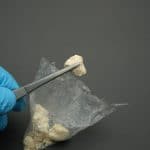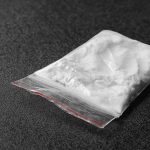Cocaine is an illicit, addictive drug that resembles a fine white powder. It can be abused by snorting, injecting, smoking, or rubbing it into the gums. Crack cocaine, a crystal-like variant, leads to faster effects but wears off quickly.
Treating cocaine addiction starts with identifying the problem. If you suspect a loved one may be abusing cocaine, you can spot potential changes in their behavior and encourage them to attend treatment.
Effects Of Cocaine Addiction
Cocaine affects the brain in both the long- and short-term. In the short term, cocaine increases dopamine and norepinephrine levels, two neurotransmitters that control movement, reward, and alertness.
Cocaine works by blocking dopamine receptors, allowing the buildup of the neurotransmitter in the brain. Over time, this can lead to tolerance of the drug’s effects, potentially causing repeated drug use to achieve the initial euphoria.
Snorting cocaine is a popular method of use, but it has a slower onset than methods like smoking or injecting.
Short-Term Effects
Cocaine is an appealing drug because it can cause a “rush” of energy and euphoria. It is commonly known as an “upper” due to its potential for energy boosts, and is officially classified as a stimulant.
Short-term effects of cocaine use include:
- increased energy and awareness
- nosebleeds
- increased heart rate
- chest pain
- loss of appetite
Short-term side effects may vary depending on the dosage and other ingredients. Due to cocaine’s appearance and illegal status, it can be mixed or “cut” with other substances to increase profits for dealers. Some of these ingredients can be dangerous when ingested.
“Cut” cocaine may include innocuous ingredients like flour or baking soda, or dangerous ingredients like fentanyl, amphetamines, and levamisole.
Long-Term Effects
Due to the short duration of cocaine’s effects, people are prone to taking multiple doses over a short period of time. This is known as “binging” cocaine. Binging cocaine can cause a depressive crash once the effects finally wear off.
Over time, cocaine can change your overall brain chemistry, making it difficult to function without it. Tolerance of increased dopamine levels can lead to more frequent cocaine use, which further puts your health at risk.
Stopping cocaine when you have cocaine dependence can lead to withdrawal. Some patients may keep taking cocaine to avoid painful withdrawal symptoms. Other long-term effects of cocaine abuse include:
- increased risk of bloodborne diseases like HIV or hepatitis
- psychosis
- weight loss
- depression
- increased fatigue
Learn more about the Short-Term & Long-Term Effects Of Cocaine Use
Signs Of Cocaine Addiction
Cocaine addiction may also be called cocaine use disorder, a mental health issue defined by long-term, uncontrolled cocaine use. Other stages of cocaine use disorder include dependency and withdrawal.
Some cocaine withdrawal symptoms can be spotted by a careful eye even without direct evidence. Addictive behaviors can be spotted similarly. If you suspect a loved one might be addicted to cocaine, look for these signs:
- cocaine withdrawal
- constantly talking about cocaine
- mood swings
- changes in behavior (lying, being secretive, paranoia)
- constantly dilated pupils
Cocaine Overdose
People who suffer from cocaine addiction are also at risk of overdose.
Signs of an overdose may include:
- cardiac arrest/heart attack
- heart arrhythmia
- seizures
- stroke
- hallucinations
- trouble breathing
- high body temperature
- high blood pressure
If you see these symptoms in yourself or a loved one, call for help right away.
Learn more about Cocaine Signs & Symptoms
Treatment For Cocaine Addiction
Though cocaine can cause serious substance use disorders, effective treatment methods are available. Substance abuse treatment programs for cocaine addiction may include:
- cocaine detox
- cognitive behavioral therapy
- relapse prevention and aftercare
- community recovery programs
Depending on the severity of cocaine use disorder, a patient may be recommended for inpatient care at a treatment facility. Other patients may benefit from outpatient care, where they can maintain their daily routines while going to treatment.
For quality cocaine addiction treatment in a convenient Massachusetts location, please contact Northeast Addictions Treatment Center today.
FAQ
- Can I afford cocaine addiction treatment?
Often times, your health insurance plan can cover a majority of the cost of your treatment from cocaine addiction. Not sure where to start? We can help verify your insurance plan and point you in the right direction, even if it’s not with us.
- Can I force a loved one to go to rehab for cocaine abuse?
If you live in the state of Massachusetts, there is a law that passed, known as Section 35. Under this law, it “allows a qualified person to request a court order requiring someone to be civilly committed and treated involuntarily for an alcohol or substance use disorder”.
- How can I stage an intervention for cocaine addiction?
If you have tried talking to your loved one about their issue with cocaine and still can’t get them into treatment, give us a call. We can talk you through the steps needed to hold an intervention and can even send a certified interventionist to help assist you during this process. There is some planning that goes into place in order to conduct a successful intervention.
- How do I talk to a loved one about cocaine addiction?
Talking to a loved one about cocaine addiction treatment can be tough. It’s important to go about it in a healthy way, without them feeling judged or pressured. Here are some tips on talking to a loved one about addiction treatment.
How Long Does Cocaine Stay In Your System?
Cocaine stays in your system for about 5 hours after using it. Drug tests can detect cocaine use for up to 90 days after the last use by testing for unique cocaine metabolites.
To learn more, read How Long Does Cocaine Stay In Your System?
What Are The Effects Of Cocaine Use?
Effects of cocaine use include increased alertness, chest pain, nosebleeds, high blood pressure, cardiovascular problems, and drug addiction.
Learn more about the Short-Term & Long-Term Effects Of Cocaine Use
What Are The Effects Of Cocaine Rectal Use?
Cocaine rectal use, also known as plugging or booty bumping, can cause the drug to enter your bloodstream more rapidly. You may experience more intense side effects as well as adverse effects on the heart and brain.
In addition, frequent plugging can affect rectal tissue and cause damage, pain, and bleeding. If you are using heavy amounts of cocaine, using it rectally also increases the risk of experiencing a potentially life-threatening overdose.
Learn more about Plugging Cocaine
What Does It Mean To Freebase Cocaine?
Cocaine hydrochloride, which is the powder form of cocaine, is generally snorted or injected. However, powder cocaine can be processed with ammonia and ether to produce a crystallized form that can be smoked, known as freebase cocaine.
Freebase cocaine is potent and produces rapid euphoric effects, which makes it highly addictive.
Although freebase cocaine was popular in the 1970s, it is no longer common because of the risks of burns. Instead, another form of potent and smokable cocaine was produced, known as crack cocaine.
Learn more about Freebase Cocaine
What Is Pink Cocaine?
Pink cocaine is a potent synthetic drug called 2C-B that has seen widespread use since the 1990s. Effects of pink cocaine may include hallucinations, hypertension, seizures, psychosis, and vomiting. There is a high potential of unexpected side effects due to unknown additives.
Learn more about Pink Cocaine
Can You Eat Cocaine?
Although most people abuse cocaine by snorting, smoking, or injecting it, you can eat cocaine. People eat cocaine by ingesting it or rubbing it on the gums. Rubbing it on the gums causes a numbing sensation and is associated with the quality of the drug.
Although less intense compared to other methods of use, eating cocaine may still produce stimulant effects like euphoria, increased energy, focus, and talkativeness. Heavy use increases the risk of dangerous health effects, including heart attack, seizures, and cardiac arrest.
Learn more about Eating Cocaine
How Much Does Cocaine Cost?
In the United States, one gram of cocaine typically costs between $25 and $200. The exact price depends on multiple factors, including the type of cocaine. In general, powder cocaine costs about $93 per gram, while crack cocaine costs about $60 per gram.
In addition, cocaine tends to cost less in big cities compared to more rural areas. That’s because cities tend to have a higher supply of cocaine, which leads to lower prices.
The drug is also cheaper when it’s free of additives. Common cocaine additives include household items like flour and cornstarch, illicit drugs like heroin, and prescription drugs like fentanyl.
Learn more about the Street Value Of Cocaine
Can People With Cocaine Addiction Recover?
Yes. Like many other diseases, cocaine addiction is treatable.
However, it’s important to choose a treatment program that offers evidence-based treatment services, such as medical detox, cognitive behavioral therapy, and 12-step programs. A person in recovery will also need support and encouragement from loved ones.
After treatment, some people relapse. While relapse may be alarming, it doesn’t mean the person failed. It just means they need additional or modified treatment.
Learn more about how to support Cocaine Addiction Recovery
What Are Some Examples Of Cocaine Abuse?
Snorting cocaine, injecting cocaine, and smoking cocaine are examples of cocaine abuse. Any form of unapproved cocaine use is a form of drug abuse. Abusing cocaine can cause severe short-term and long-term side effects.
Learn more about Cocaine Abuse
Sources
Written by
Northeast Addition Editorial Team
©2024 Northeast Addition Center | All Rights Reserved
This page does not provide medical advice.








